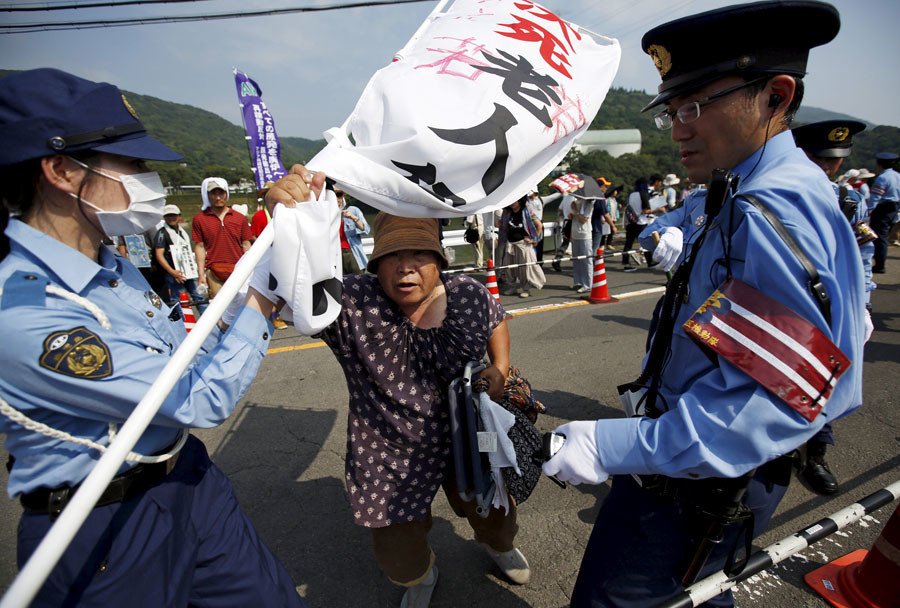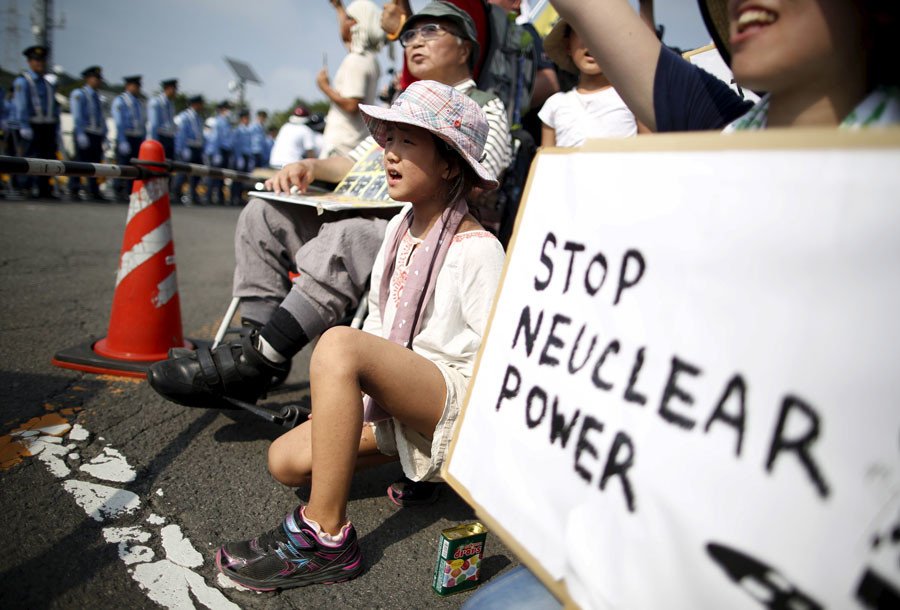Protests as Tokyo restarts first nuclear plant since Fukushima disaster
Protesters rallied outside Japan’s Sendai nuclear plant and its company’s headquarters to demonstrate against the planned restarting of operations, over four years after the Fukushima disaster that left the entire world horrified.
One major concern about the resumption is that no evacuation plans – in case of a Fukushima-style catastrophe – have been disclosed to locals.
“There are schools and hospitals near the plant, but no one has told us how children and the elderly would be evacuated,” Yoshitaka Mukohara, a prominent Japanese anti-nuclear activist leading the protest, told the Guardian as the demonstration gathered in front of the Kyushu Electric Power Co. headquarters.
“Naturally there will be gridlock caused by the sheer number of vehicles, landslides, and damaged roads and bridges.”

His concerns were echoed by many, including Naoto Kan, prime minister during the Fukushima crisis and a participant in the protests.
“We don’t need nuclear plants,” he told protesters as he spoke during the rally.
The Fukushima catastrophe had "exposed the myth of safe and cheap nuclear power, which turned out to be dangerous and expensive," the former leader added.

Anti-nuclear activists also expressed their frustration at the step.
"I cannot understand why operations are resuming,” said Tatsuya Yoshioka, director of Peace Boat, one of the rally organizers, as cited by the Asahi newspaper.
A day earlier, 2,000 people marched near the Sendai nuclear plant to protest against the re-launch.
It comes as the first reactor is to be restarted since a March 2011 earthquake and subsequent tsunami devastated the Fukushima nuclear power plant.
#VIRAL: Radioactive water leaked from #Fukushima storage tank – TEPCO http://t.co/Ddv9T0o80upic.twitter.com/GSXQa71rMB
— RT (@RT_com) May 3, 2015Kyushu Electric Power Co. said the No. 1 reactor at its Sendai facility is set to begin power generation on August 14 and will start working at its full capacity in September. Another reactor is scheduled to be restarted in October.
“We will continue to seriously and carefully cooperate with the country’s inspections, making safety our top priority, cautiously advancing the restart process,” Kyushu Electric Power Co. said in its official statement.
Prime Minister Abe said on Monday that the reactors had passed "the world's toughest safety screening."
The Japanese government has set a goal for the nuclear power to cover more than 20 percent of energy needs by 2030.
READ MORE: Fukushima operator sued over suicide of 102-yo by hanging during evacuation
The Fukushima nuclear disaster was the second (Chernobyl being the first) to measure Level 7 on the International Nuclear Event Scale.
It caused the complete shutdown of the Japanese nuclear facilities in 2013, despite 30 percent of electricity previously coming from the nuclear power.
The authorities are still dealing with the Fukushima crisis, trying to contain the contamination after the meltdown.












